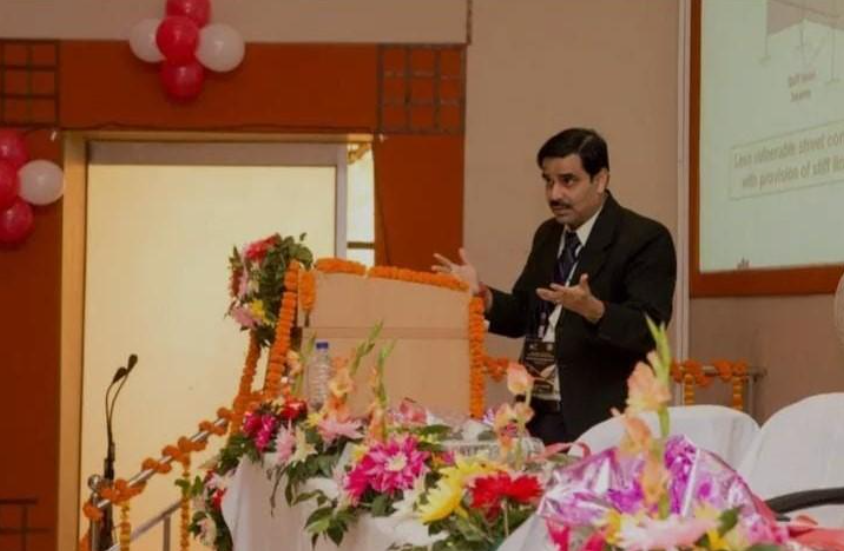Earthquake engineering is a subcategory of civil engineering that encompasses analyzing and designing structures to prevent damage and collapse due to earthquakes and other natural disasters. Earthquake engineers adopt an interdisciplinary approach to evaluate and design buildings and structures from various engineering perspectives to minimize damages. Structural engineering is also a multidisciplinary category of civil engineering that focuses on designing the framework and structure according to potential damages from earthquakes and other natural disasters. Structural engineers focus on the strength, stability, and rigidity of structures and buildings during the design and planning phase to maximize buildings’ durability and longevity. Structural and earthquake engineering go hand-in-hand regarding damage prevention because both disciplines focus on minimizing human and economic losses caused by unforeseen circumstances or events like earthquakes.

Natural disasters like earthquakes, floods, cyclones, hurricanes, and extreme weather kill and displace thousands of people annually and cause significant economic losses. Developing nations face a significantly higher risk of financial and human losses due to natural disasters due to a lack of preparedness and planning. Developed countries are usually more prepared and equipped to deal with the human and financial fallout of natural disasters due to the significant roles played by civil, structural, and earthquake engineers and their research. Sekhar Chandra Dutta is among the few structural and earthquake engineers in the world with a scholarly grip on the effects of earthquakes on buildings and structures. He is a career academic with extensive teaching and research experience in the structural behavior of structures during and after earthquakes.
Sekhar Chandra Dutta is an Indian civil engineer, researcher, professor, and author with numerous scholarly contributions to civil engineering, especially in structural and earthquake engineering. He has more than 27 years of teaching experience and started his academic career in 1995 at the B.E. College (D. U.) Shibpur, India, while serving in multiple capacities at the college, including assistant professor and professor. He taught civil engineering students at the Bengal Engineering and Science University in Shibpur, India, for five years before joining the prestigious Indian Institutes of Technology (IIT). IITs are prominent Indian institutions offering education in various disciplines from the undergraduate to post-doctoral levels. Dutta established and became the founding head of the School of Infrastructure at IIT, Bhubaneswar, in 2009. He taught in various IIT branches across India before becoming the head of the civil engineering department at IIT, Dhanbad, where he has served as a professor since 2015.
Scholarly research is essential in informing and influencing any field, including civil and structural engineering. Researchers conduct studies to offer new and unique insights into various elements and aspects of an academic or professional discipline. Sekhar Chandra Dutta is a scholarly researcher with numerous research studies and projects. He completed more than 120 research studies individually and in collaboration with other prominent scholars since 1992, apart from 80 conference publications. His research revolves around civil, structural, wind, and earthquake engineering while focusing on structural dynamic and natural disaster mitigation. His recent publications include a damage survey and seismic vulnerability assessment of unreinforced masonry structures, the seismic behavior of structures under bidirectional ground motion, and the inelastic seismic behavior of asymmetric structures with mass and stiffness.
Dutta also published scholarly work focusing on the behavior of thermo-mechanically treated rebar exposed to elevated temperatures, fire in tunnels, and bidirectional ground shaking on structures in the elastic and post-elastic range. Sekhar Chandra Dutta co-authored a book related to earthquake engineering with Parthasarathi Mukhopadhyay in 2012. The book was on improving earthquake and cyclone resistance of structures. He co-authored a chapter, “Indian cyclones and earthquakes: Their impact on structures,” in the Encyclopedia of Natural Hazards in 2018. He also offered consultancy as an expert in earthquake engineering in various public and private research, infrastructure, and construction projects.
Sekhar Chandra Dutta offered consultancy in 23 projects involving various aspects of structural and earthquake engineering. His recent consultancy ventures include proof evaluations, checking various infrastructure and construction projects, and offering third-party quality assurance services to public and private organizations. Dutta also provided expert advice and consultancy to the central government and railway department regarding proof evaluations of infrastructure projects. Sekhar Chandra Dutta is elevating structural and earthquake engineering to new heights through his teaching and research work. His research and consultancy work offers unique insights into the effects and impact of earthquakes and other natural disasters on structures. Dutta’s insight and research are beneficial for developing earthquake-resistant structures in developing countries like India.